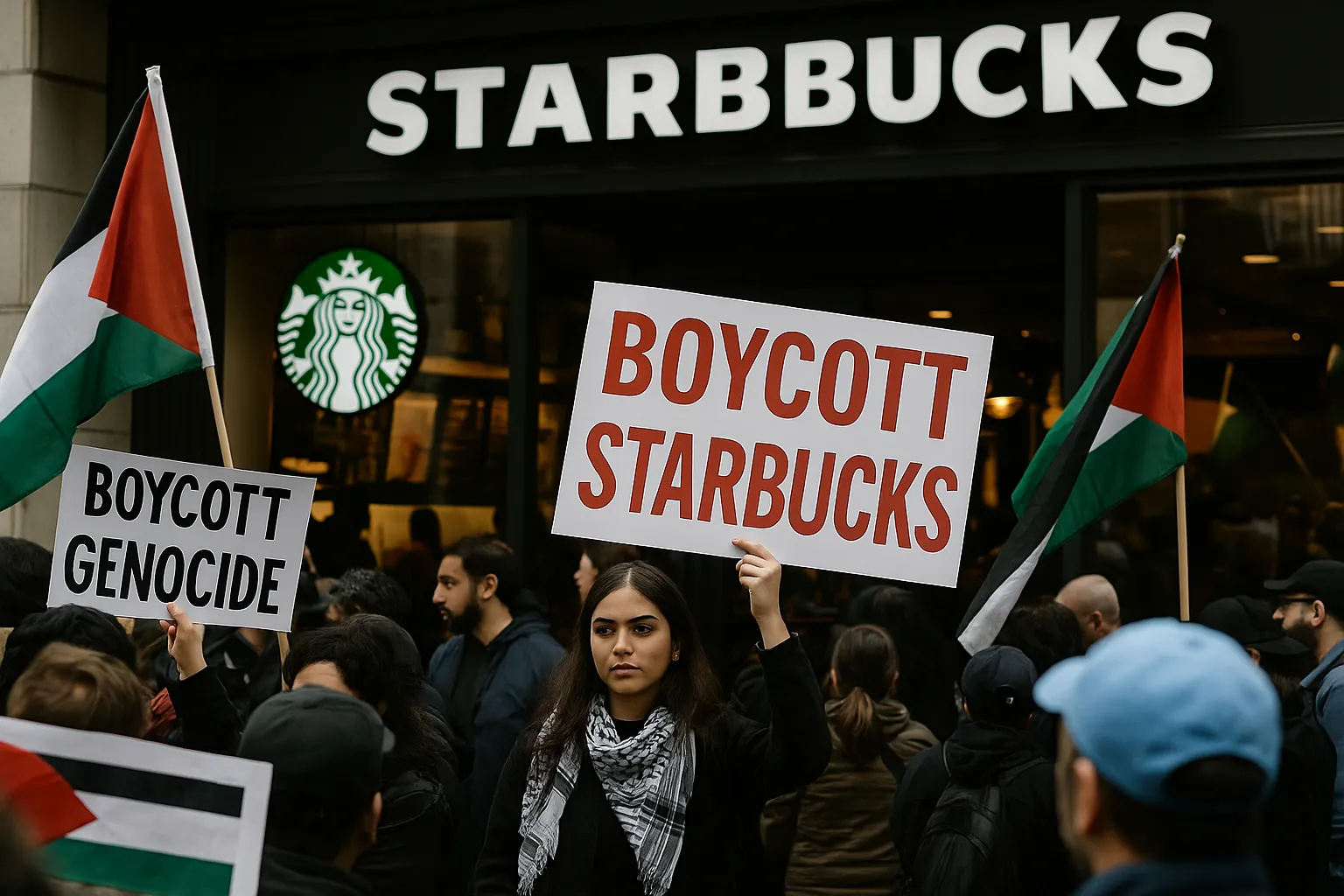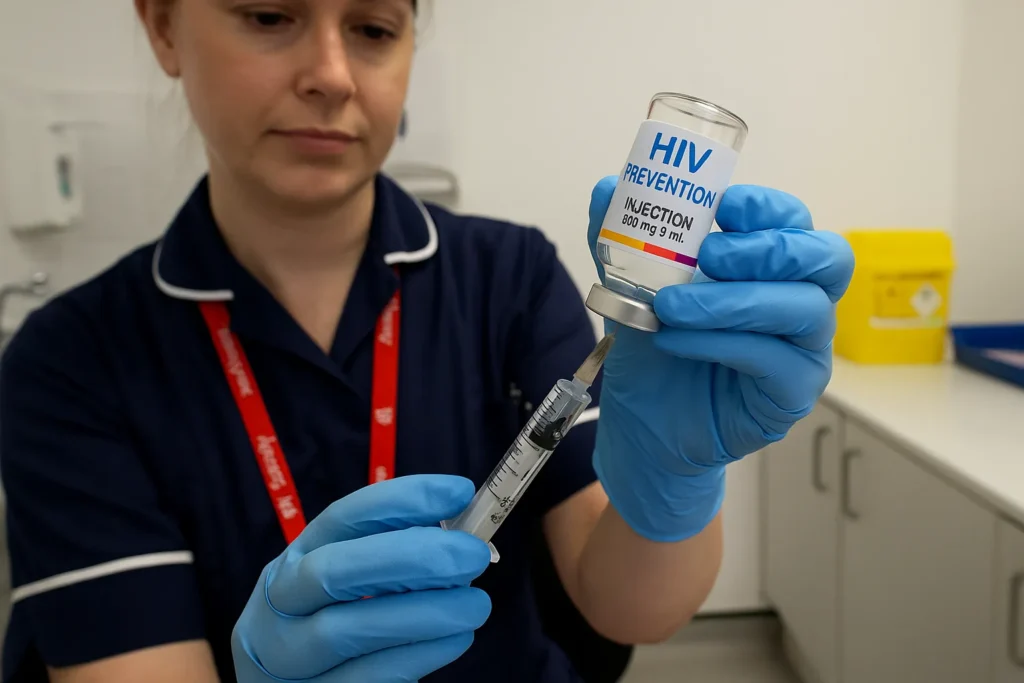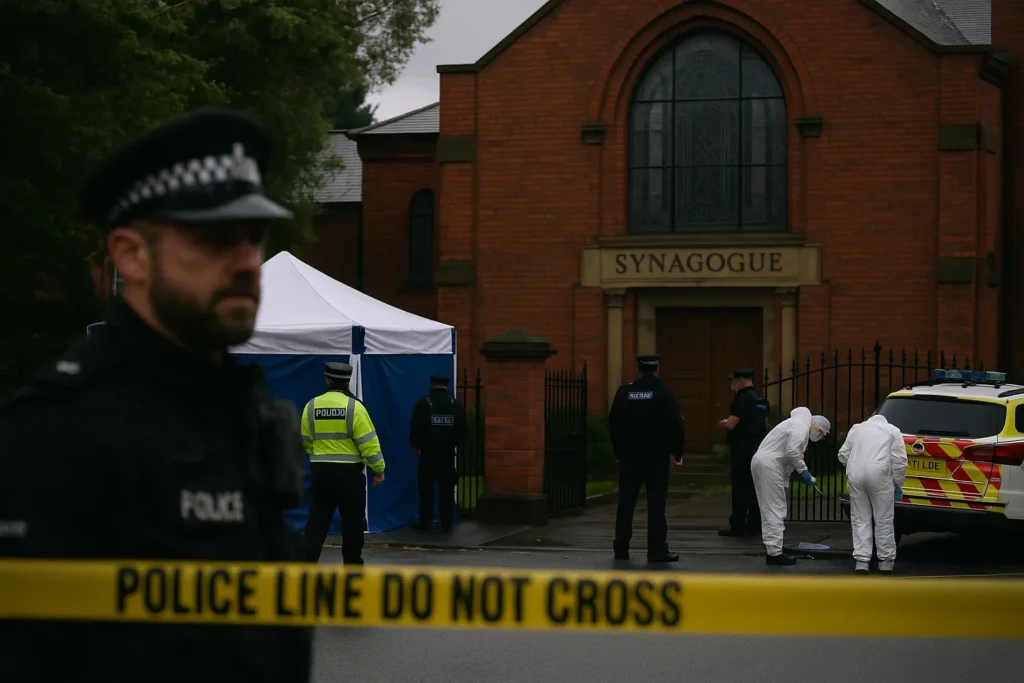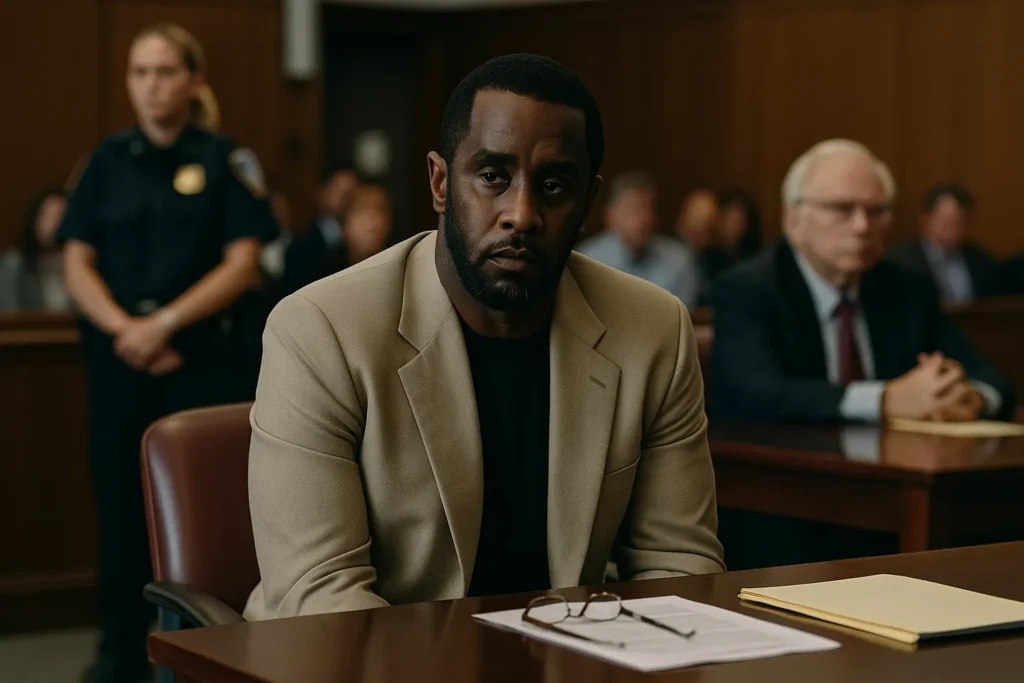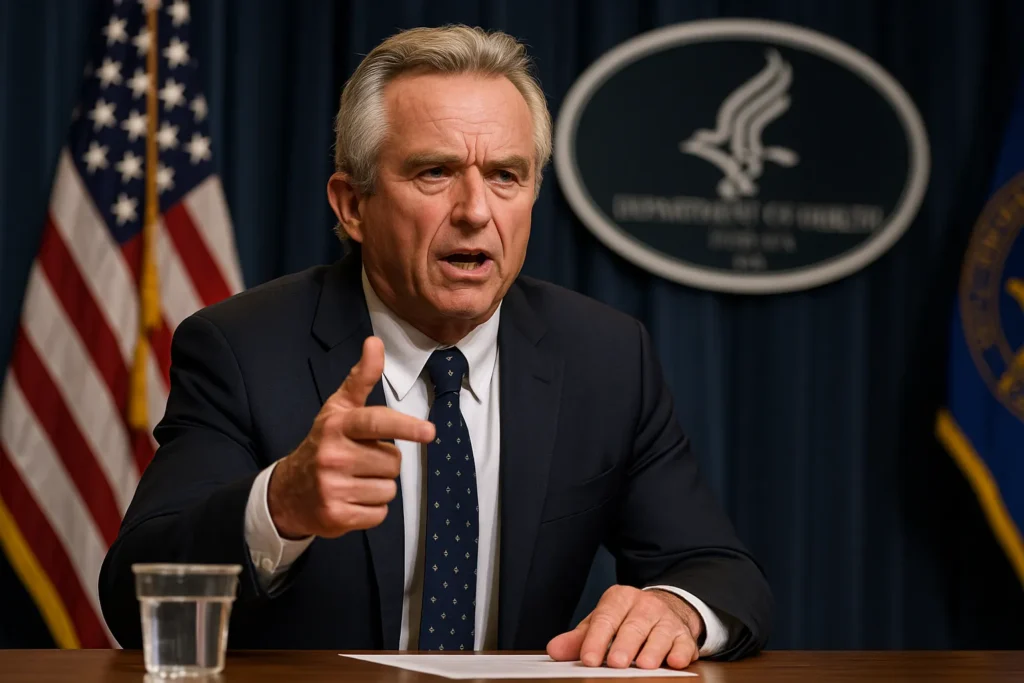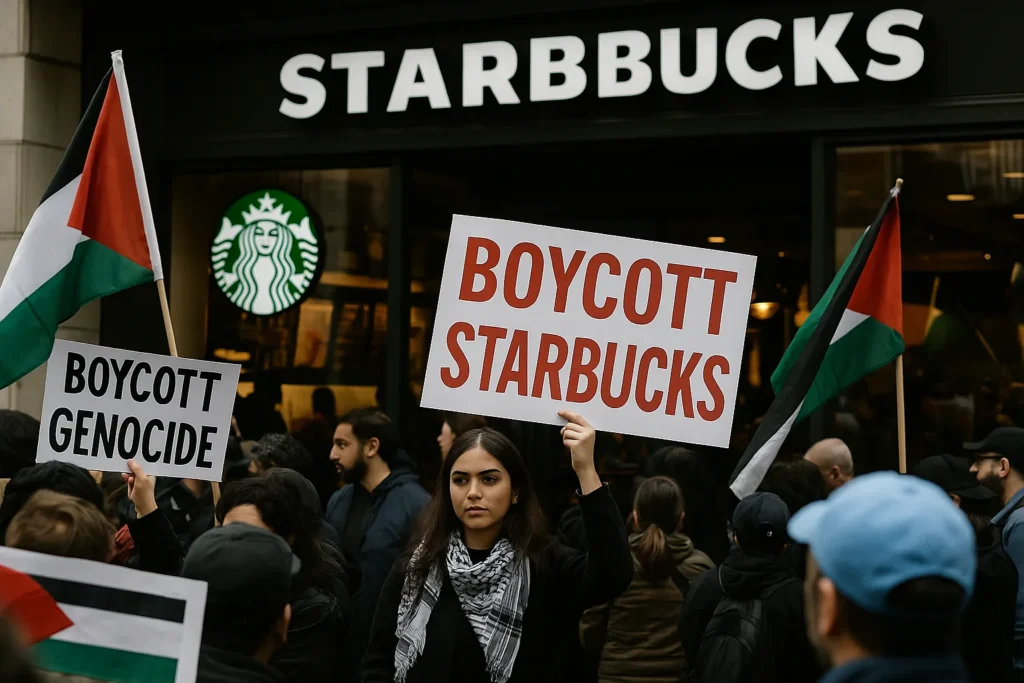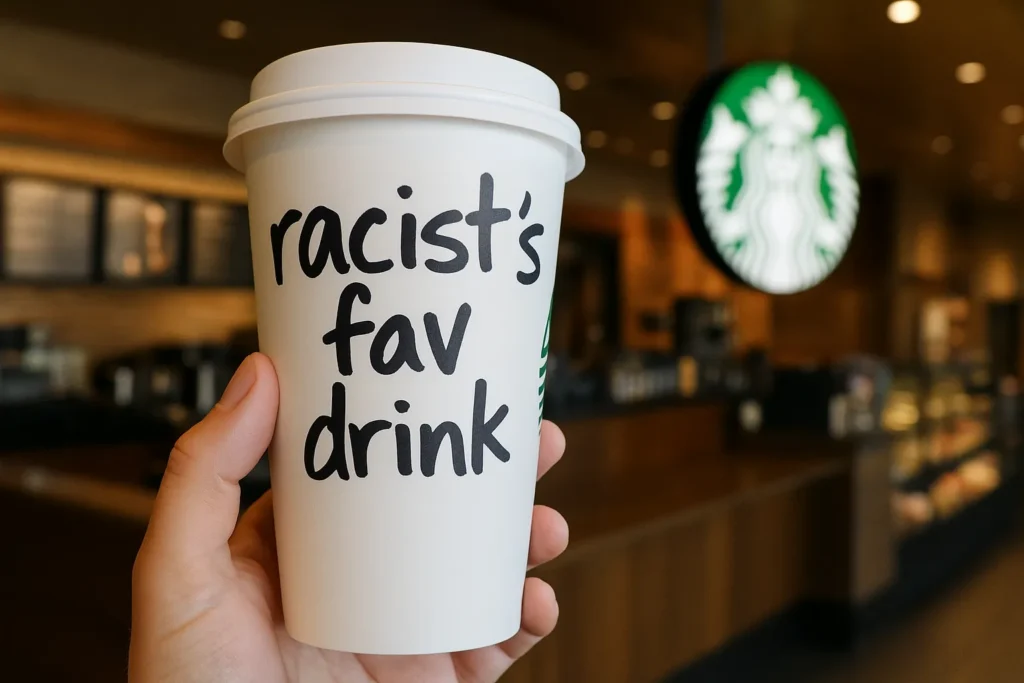The starbucks boycott impact is no longer a question of consumer choice — it is a brutal economic reality. What started in 2023 as a call from Palestinian solidarity activists to punish Starbucks for its perceived alignment with Israel has grown into one of the most effective corporate boycotts in recent memory. Billions have evaporated, sales have plunged, and now the coffee giant is restructuring in desperation.
Context: from activism to market collapse
Since 2023, solidarity groups have used boycotts as a tool to pressure global brands. Starbucks, with its ubiquity and Western cultural status, became a prime target. Social media amplified the campaign, turning local protests into global trends. From hashtags to street demonstrations, activists maintained relentless pressure, framing each purchase of a latte as complicity in Israel’s war policies.
At first, mainstream commentators downplayed the risk. Analysts dismissed the boycott as symbolic, expecting Starbucks’ massive footprint to shield it from activist pressure. But the numbers tell a different story. The company has now lost approximately $11 billion in market value, equal to 9.4 percent of its total. And the decline was not temporary. Starbucks has reported six consecutive quarters of same-store sales decline.
Oppositional Argument: why the narrative was wrong
Corporate media insisted for months that “boycotts don’t work.” The starbucks boycott impact proves otherwise. Consumers wield power when action is collective and sustained. Starbucks executives underestimated the resonance of the Palestinian cause among global youth. They also underestimated the way digital activism can erode brand equity.
The idea that Starbucks was “too big to boycott” has collapsed. No corporation is immune when reputation and values collide with consumer sentiment. By labeling protests as marginal noise, Starbucks misread the cultural moment — and paid with billions.
Analytical Breakdown: dollars, perception, and decline
The boycott’s financial punch is undeniable.
- $11 billion lost in market value, wiping out 9.4 percent of equity.
- Six straight quarters of declining same-store sales.
- An erosion of Starbucks’ “premium” image, particularly among younger consumers.
Causation is clear. Social media boycotts reinforced real-world activism. Protesters picketed stores, while online campaigns shamed consumers into avoiding the brand. Each missed sale multiplied the effect.
Starbucks’ delayed response — only now announcing a “restructuring plan” involving store closures and layoffs — suggests corporate leadership failed to anticipate how quickly grassroots activism could destabilize global operations.
Human Perspective: voices behind the boycott
For activists, the starbucks boycott impact is vindication. Palestinian solidarity movements have long argued that economic pressure is one of the few tools available against powerful state and corporate actors. In their eyes, every billion lost is a moral victory.
Ordinary consumers also saw their spending decisions weaponized. Choosing a different café became an act of protest, a way to stand with Gaza without leaving one’s city. For many, this was the first time they felt direct economic action mattered.
Counterarguments
Critics argue that the boycott unfairly punishes baristas and low-wage workers rather than executives. Store closures and layoffs mean ordinary employees bear the cost. This is true — but the counterargument misses the larger reality. Starbucks’ leadership made strategic choices that linked its brand to controversy. The economic fallout is the result of those decisions, not consumer protest alone.
Others insist the decline reflects broader inflation and competition in the coffee market. But six consecutive quarters of underperformance compared to rivals point to a boycott-specific effect.
Conclusion: judgment on corporate arrogance
The starbucks boycott impact demonstrates that activism works when it is consistent, emotional, and globally amplified. Starbucks thought it could shrug off protest. Instead, it has been forced into restructuring, shuttering stores, and firing staff to stabilize.
The lesson is unmistakable: corporations cannot insulate themselves from political accountability. Consumer activism, once dismissed as ineffective, has erased billions from one of the world’s most recognizable brands. Starbucks may recover, but its aura of invincibility has been permanently cracked.
External Links
60 views
